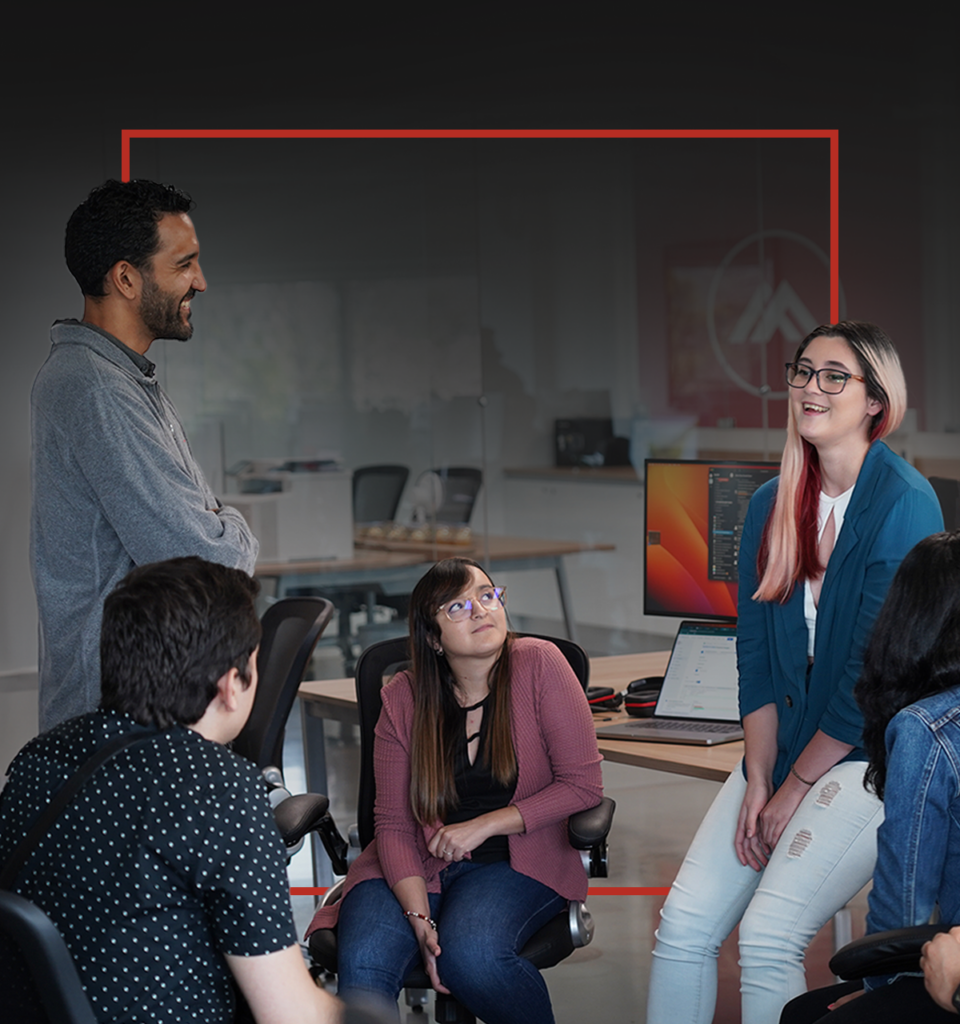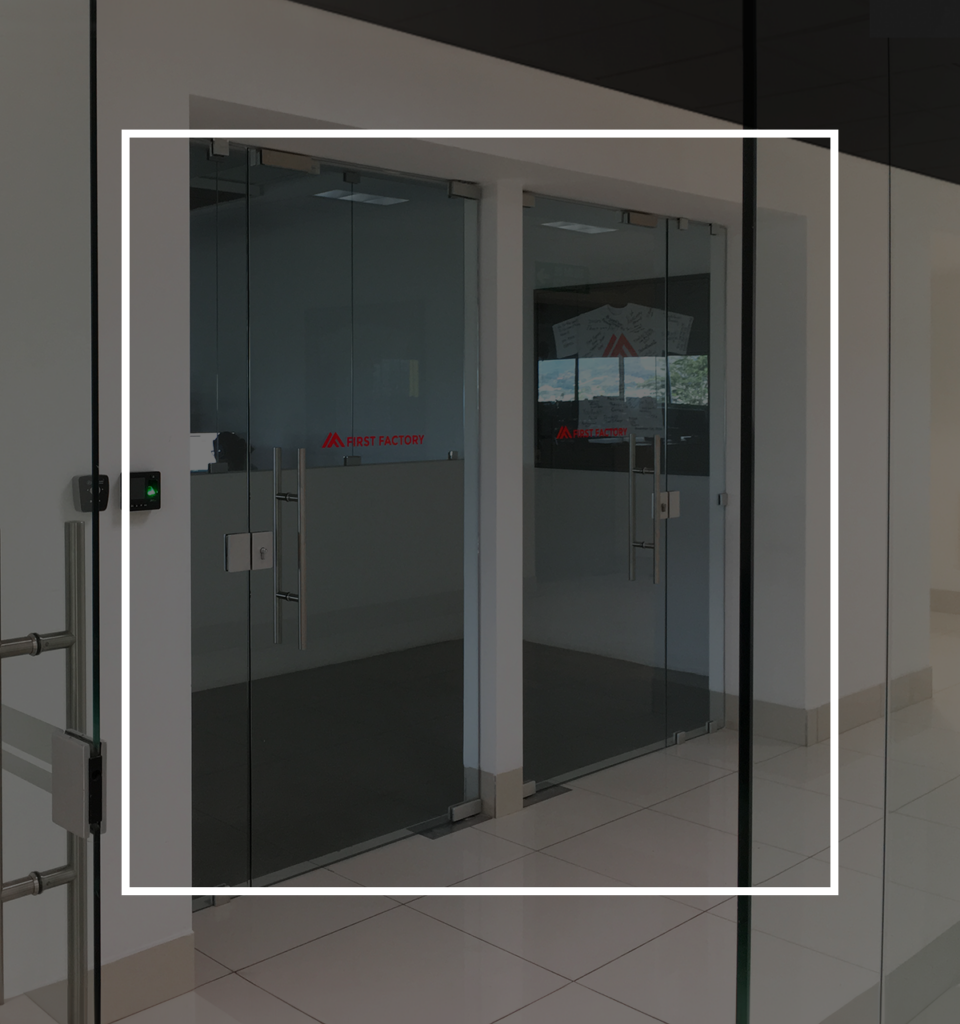
Software development is the core of what we do. First Factory was founded in 2000 by a developer who wanted to create an open, shareable workspace for software engineers to cultivate ideas, collaborate, and excel at major projects. We know there are thousands of companies in the software development space. We are going to give you really good work, and we are going to build a relationship with you. We offer ownership, loyalty, and trustworthiness: core values that are often lost in the commoditization of software development services.
Software Development
Software development is the process of designing, creating, testing, and maintaining software applications and systems. This involves translating user needs and requirements into functional software solutions. Our software developers are the creative minds behind these applications, working with various programming languages, tools, and technologies to bring ideas to life.
In our nearly quarter-century of experience, our engineers have worked with dozens of technologies, including the backend technologies of .NET, Java, NodeJS, PHP, Python, & Ruby on Rails. We are extremely well-versed in front end technologies such as React, Angular, and other JavaScript frameworks. We have built and maintained mobile applications in React Native (as well as older cross-platform languages) and native-specific languages for Android and iOS. The team has worked with machine learning tools for multiple clients on discrete tasks such as converting images to text and on a human-centered AI platform used to deploy large language enterprise solutions for companies looking for financial and performance insights. We continue to work with clients learning and leveraging Generative AI with ChatGPT and Google’s Bard/Duet.
DevOps
DevOps, short for Development and Operations, is a set of practices and principles aimed at enhancing collaboration and communication between software development (Dev) and IT operations (Ops) teams. The primary goal of DevOps is to automate and streamline the software delivery process, from code development to deployment and maintenance, in order to achieve faster and more reliable software releases. Our DevOps engineers play a pivotal role in implementing DevOps practices, managing infrastructure as code, and facilitating a culture of continuous integration, continuous delivery (CI/CD), and automation. They bridge the gap between development and operations by ensuring that code changes can be deployed smoothly while maintaining system stability and reliability.
DevOps demands have increased significantly in recent years, and our team has experience with all three major platforms: Amazon Web Services (AWS), Microsoft Azure, and Google Cloud Platform (GCP). In addition to having numerous staff with certifications in AWS and Azure, First Factory is a certified AWS Partner.
We can assist you with automating tasks, monitoring system performance, and ensuring the scalability and security of your software applications.
Undecided on which cloud platform to choose? Read our whitepaper, How to Decide on a DevOps Cloud Platform.
Software Architecture
Our Software Architects will help you design well-structured, scalable, and efficient software systems—regardless of the complexity. We have also come in to assess existing applications that are failing to meet business or user needs or that are simply costing too much to adapt and maintain. We adhere to industry best practices and have defined standards that we utilize on all projects to ensure high performance, low maintenance costs, and speed to market. Often, our architects will serve in a technical leadership capacity for part or all of the project to provide guidance and oversight to the team.
First Factory Architects will define the system’s components, interactions, and the data flows between them. They will evaluate open-source solutions and retail products to craft a system that is modern, scalable, and secure. During this process, the architects will evaluate and forecast future costs so that the technical decisions made up front will align with your company’s project and long-term budgets.
We have architected solutions for financial investment firms with a diverse portfolio of assets and the thousands of transactions that flow between multiple banking partners. We drafted and built a vertical platform for all of the pre-closing transactions for residential and commercial real estate sales for a start-up. We designed and constructed a robust suite of web and mobile tools for a security firm in order to manage staff assignments, provide real-time geo-tracking for security compliance and incident management, bill and invoice clients, and use a host of other HR and management resources. And we have done so much more.
A good idea cannot grow into a profitable product unless proper due diligence is spent on research and design, both the technical and user interface design.
Quality Assurance
Quality Assurance (QA) Engineers play an important role in ensuring the quality of software products through the design, development, and execution of manual and automated tests.
Collaborating with cross-functional teams, a QA Engineer will analyze business requirements, develop test plans, and implement effective testing strategies. Our QA team members possess a strong understanding of QA fundamentals and programming skills. They consistently demonstrate a commitment to delivering high-quality software, essential to the team’s success in meeting your business objectives. QA Engineers should be involved early (at requirements gathering) and throughout the software development process. They are often the best critical thinkers on the team. They are adept at defining edge cases that the team may have missed and identifying vulnerabilities in the code that could result in failures for the end user.
Our QA team, supported full-time by a dedicated QA Manager, creates detailed, comprehensive, and well-structured test plans and test cases for your products. They are experienced in performing functional testing, regression testing, smoke testing, and sanity testing for both web and mobile applications. While manual testing is still utilized on all projects, every one of our QA Engineers has advanced knowledge from using at least one automated testing technology—such as Selenium, Cypress, Playwright, or Appium—as we have witnessed the shift in demand for these skills from clients and engineers alike. Of course, they have solid knowledge of MySQL or SQL Server, are familiar with source code tools like Bitbucket or GitHub, and are comfortable with API testing using Postman or similar tools.
No team should be without QA, even if the dedication is half-time. It is a role that we have seen improve code quality and team velocity, reduce bugs, and prevent future refactors.
UX/UI Design
UX/UI designers provide critical services that not only improve the products and boost business outcomes but also engage designer efforts prior to the development phase, ensuring the software builders know precisely what to build and how to test. Spending time with a design team in order to understand the problem and the final users’ needs, see options, and make decisions will save countless development hours and dollars. The Design Thinking process of Empathize, Define, Ideate, Prototype, and Test yields a confident path forward for your product. Designers aim to build user-friendly software products that keep users engaged on your platform, increase the cart value of visitors, or effectively usher them to better outcomes. Each design phase plays a pivotal role in enhancing the overall user experience and, subsequently, the success of the product. Our design team can help you with the following:
- UX Research
- Information Architecture
- Wireframes
- High-fidelity designs
- Clickable Prototypes
- Usability Testing
By investing in some or all of these design services, you and your team increase the probability that the project will run on time, on budget, and on target for business success.
Project Management
For larger teams, or when managing multiple projects, someone should be dedicated to overseeing the entire software development project, from the early planning stages through requirements gathering and refinement to implementation and user testing.
While some of those tasks seem similar to the responsibilities of a Business Analyst, a Project Manager (PM) is responsible for outlining the scope of work for the project, the timeline, and the budget. The PM will run the day-to-day project and convene with stakeholders, the client, and the development team. A key function served by the PM is identifying and mitigating risks that could delay or derail the project. This elevated role provides leadership to the software development team, provides organizational structure, and drives proactive and results-driven communication.
If you have a complex software product, are juggling multiple projects, and/or cannot allocate the time and subject matter expertise that the development team will need from you to hit the project roadmap milestones, then a Project Manager may be the key player you need to deliver the anticipated results with confidence.
Business Analysis
Projects that lack a Business Analyst (BA) often demonstrate how the gaps in knowledge and expectations between stakeholders and developers lead to delays in production, a focus on the wrong priorities, edge case omissions, and incomplete features. The BA function plays a key role in the software development life cycle, with responsibility and accountability for gathering and understanding the business requirements, translating them into technical requirements, and ensuring that the final product meets the needs of the business and the end user.
Communication is the greatest tool we have and is the foundation of product development. BAs bridge the gap between stakeholders, elicit details, identify assumptions and pitfalls, and ensure decisions are made before the team progresses. All of this brings higher levels of engagement, better and more consistent team velocity, and a greatly reduced risk of failure or missed milestones. In the last couple of years, our clients have been adding BAs from our team to all of their larger projects, recognizing that maximizing the contribution of the software development resources while considering their own time constraints requires someone on the team to drive the requirements and progress of the team forward.
Scrum Management
Scrum is an iterative framework for developing and delivering complex products. Initially designed for the software development industry, it is now being leveraged across other industries and cross-departmental projects. It is an iterative and incremental approach that focuses on delivering working software (or product features) in short cycles called sprints. The Scrum Master on a team serves to keep the team focused on the right priorities, follow the scrum process, schedule and facilitate scrum ceremonies, escalate risks to the Project Manager or identified subject matter experts, and help the team avoid distractions and remove impediments.
While the duties of the Scrum Master may be absorbed by other roles on some projects, like a Project Manager, having a dedicated Scrum Master (at least part-time) on a team is a good choice for projects that are complex, have a high degree of uncertainty, or require a lot of collaboration. We see the utilization of this dedicated role most often with our financial clients and those with very large projects and distributed teams.
Trusted Partnership
We aim to work with clients that respect the skill sets of our employees and embrace each software development contributor as an equal member of the team.
At First Factory, we promise to deliver exceptional work with incredible service. The satisfaction of our clients is our top priority, and we work diligently with you to make it happen.
We listen carefully to our partners and are committed to helping you achieve your product milestones and business goals. We even offer a 30-day satisfaction guarantee on all resources. We want your trust, not just your business, and we aim to prove it each step of the way.
If you have a product development need, consider the nearshore development team at First Factory for design, development, project management, and product ideation.
Contact us at +1.646.688.5070 or firstfactory.com/contact-us.



